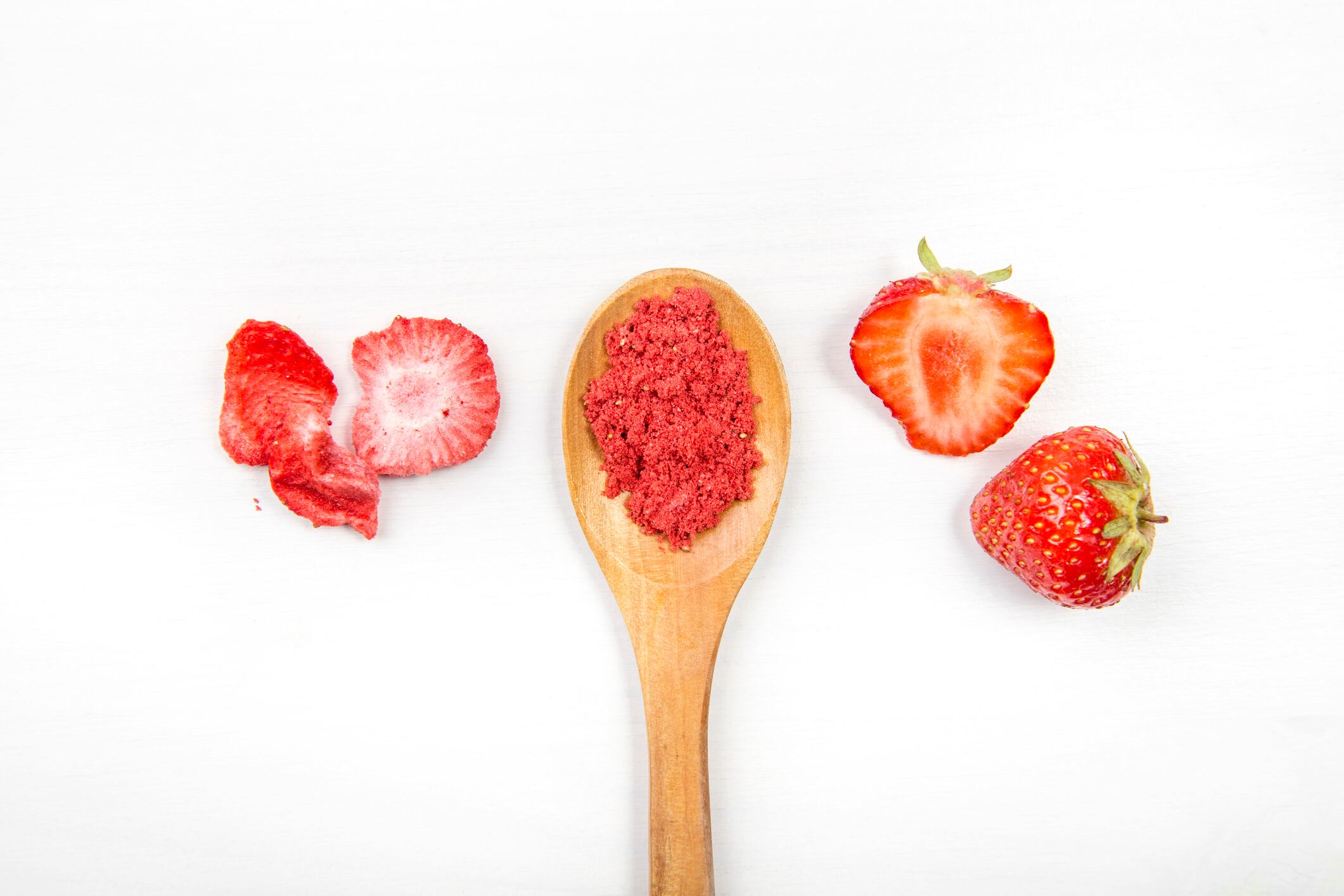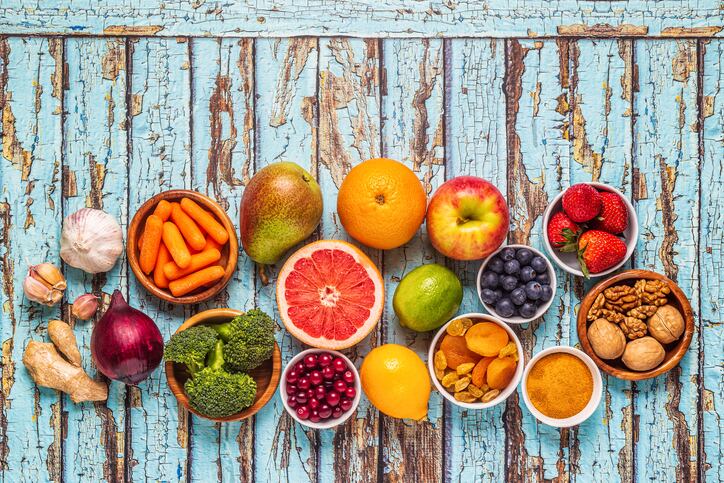Commonly consumed whole berry fruits, especially blueberries and strawberries, have been emphasised for their distinct effects in improving metabolic syndrome. Most of the health benefits have been explained by their high polyphenol and fiber content, and concomitant low caloric contributions to the diet.
Metabolic syndrome, with elevated blood lipids such as total and LDL cholesterol, remains a prominent global health issue. Dietary berries have been demonstrated to reduce these risks in clinical trials.
However, the reported findings are inconsistent, and experimental heterogeneity make concrete recommendations challenging.Supplementation with a freeze-dried powder equivalent to a pound of fresh strawberries daily was previously shown to decrease total and LDL cholesterol in overall healthy adults with abdominal obesity and dyslipidemia.
The present trial therefore compared the effects of "dietary achievable" doses of freeze dried strawberry powder - equivalent to one serving, and two-and-a-half servings of strawberries daily - in a cohort of obese adults with high LDL-cholesterol.
The results suggest that a daily dose of two-and-a-half servings of the strawberry supplement decreased serum insulin and concomitant insulin resistance (HOMA-IR) in obese adults.
The authors say this is the first study to document the role of strawberries in improving insulin resistance in a non-acute setting for four weeks in at-risk adults.
They state: "Our randomized controlled crossover trial supports the hypothesis that dietary strawberries when consumed at a dose of two-and-a-half servings a day significantly improve cardiometabolic risks, mainly via improving insulin resistance and atherogenic lipid particles, when compared to the control group.
"When consumed at a dose of one serving of strawberries, modest effects were observed for improving HDL particle size. These findings support the role of dietary strawberries in a medical nutrition therapeutic approach for diabetes prevention in adults."
Materials and Methods
This multicenter, randomised, double-blind controlled, crossover trial conducted at Department of Nutritional Sciences at the Oklahoma State University (OSU).
Participants were recruited from the campus. Adult men and women with one or more features of metabolic syndrome, abdominal adiposity (waist circumference: men >40 inches; women >35 inches), body mass index (BMI) in the obese range (≥30 kg/m2), and elevated serum LDL cholesterol (LDL-C) > 116 mg/dL were enrolled.Participants completed three, four-week interventions. During each four-week period, participants consumed beverages with water from control powder, or freeze-dried strawberry powders equivalent to one serving, or two-and-a-half servings of strawberries each day.
Health and medical history, anthropometric measurements, blood pressure recordings, blood draws, body weight, height, waist circumference, systolic and diastolic blood pressure were measured at baseline and at the end of each four-week phase of the trial.In addition to these visits, participants made biweekly short visits to the clinic to meet the registered dietitian (RD) and nurse practitioner, receive supplies of the test agents, and submit 24 h diet recalls.
The resulting data suggest that a daily dose of two-and-a-half servings of the strawberry supplement decreased serum insulin and concomitant insulin resistance (HOMA-IR), but not fasting glucose. The data also suggest an increase in serum glucagon and a decrease in serum PAI-1 with this higher dose of strawberries. The lower dose of dietary strawberries did not lead to many changes, except an increase in HDL particle size.
"While significant improvements were not observed in conventional lipids, the results revealed a decrease in serum LDL cholesterol, which was borderline significant," the report states. "Further, the higher dose of strawberries also resulted in improvements in lipid particle concentrations, especially in decreasing VLDL and chylomicron particles, as well as total and small LDL particles, all of which have important consequences in decreasing atherogenic risk in these adults."
Research background
The findings are corroborated by several reported clinical studies using different varieties of dietary berries. Using a combination of strawberry and cranberry polyphenols (333 mg for six weeks), Paquette et al. reported significant increases in insulin sensitivity, and a decrease in first-phase insulin secretion when compared to the control group in adults with insulin resistance.
In another study, feeding freeze-dried blueberry powder (1462 mg polyphenols for six weeks) also revealed improvements in insulin sensitivity in adults with metabolic syndrome.Other feeding trials using cranberry juice polyphenols (~346 mg polyphenols for eight weeks) have also revealed similar but some inconsistent results on insulin resistance and glucoregulation in adults with cardiometabolic risks.
In an acute study using a slightly higher dose of strawberries than what was used in our study (40 g strawberry powder; ~three servings of fresh strawberries), Park et al. reported a decrease in six-hour postprandial insulin load when compared to the control group in adults with insulin resistance. Their findings, together with our report, provide evidence that strawberries at a dose of two-and-a-half to three servings a day or when taken with meals could reduce the pancreatic burden of greater insulin secretion by reducing insulin resistance and yet maintaining normal blood glucose levels.
These observations have been explained by mechanistic studies reporting the role of strawberry polyphenols and dietary polyphenols for improving insulin signalling and inflammation in animal models of insulin resistance and diabetes. These findings warrant further investigation in adults with type 2 diabetes regarding the use of strawberry polyphenols, alone and in combination with other dietary polyphenols, to examine maximal efficacy on impaired glycemia.
"Our observed decreases in serum PAI-1 may be attributable to the downstream effects of improved insulin resistance with high-dose strawberry supplementation. Our findings are corroborated by mechanistic studies demonstrating decreased PAI-1 expression by dietary polyphenols," the current report states. "On the other hand, we did not observe any differences in other biomarkers of obesity including serum leptin, adiponectin, CRP, resistin, and visfatin, which could be explained by the short duration of each phase of the intervention, and no difference in body weight status in these participants."
Source: Nutrients
Scofield. R. H., et al
"Dietary Strawberries Improve Cardiometabolic Risks in Adults with Obesity and Elevated Serum LDL Cholesterol in a Randomized Controlled Crossover Trial"




